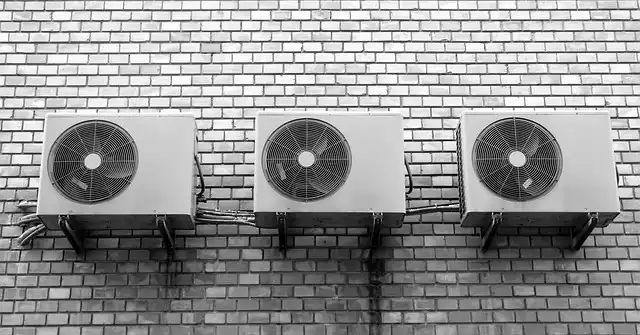Learn About HVAC in Simple Steps
In today’s world, understanding the basics of HVAC (Heating, Ventilation, and Air Conditioning) is essential for homeowners and aspiring professionals alike.
Whether you’re looking to maintain a comfortable indoor environment or considering a career in this vital industry, having a solid grasp of HVAC principles can empower you to make informed decisions.
This article is designed to guide you to Learn About HVAC in Simple Steps with fundamental concepts of HVAC in simple, straightforward steps.
You will discover how these systems work, the different components involved, and the importance of regular maintenance.
By breaking down complex terminology and processes, we aim to equip you with the knowledge needed to troubleshoot common issues, optimize energy efficiency, and ultimately create a more comfortable living space.
Additionally, understanding HVAC can save you money on utility bills and prevent costly repairs down the line.
Whether you are a DIY enthusiast or simply curious about the systems that regulate your home’s climate, this article will provide you with a clear roadmap to HVAC literacy.
Join us as we explore the essential elements of HVAC, empowering you to navigate this critical aspect of modern living with confidence and ease.
Table of Contents Learn About HVAC in Simple Steps
Understand Audel HVAC Fundamentals for clarity
Grasping the principles outlined in Audel HVAC Fundamentals can significantly enhance your understanding of heating systems, including furnaces and boilers.
This resource provides a comprehensive overview of the various components and functionalities of HVAC systems, equipping you with the essential knowledge to diagnose and troubleshoot common issues effectively.
By familiarizing yourself with the intricacies of these systems, you will develop a solid foundation that is crucial for implementing and maintaining efficient heating solutions.
Additionally, the integration of the newest chip-based technology into HVAC systems has revolutionized how these systems operate and communicate.
By understanding how these advancements enhance energy efficiency and system performance, you position yourself to make informed decisions when selecting or upgrading your heating systems.
Embracing this knowledge not only improves your technical skills but also helps you stay competitive in the evolving HVAC landscape.
Explore various heating systems available today
Furnaces remain one of the most popular heating solutions, employing forced air to distribute warmth throughout a space.
Available in various fuel types, including gas, oil, and electricity, each furnace offers distinct advantages in terms of efficiency and installation requirements.
On the other hand, boilers utilize hot water or steam to heat spaces, providing a gentle and consistent warmth that many find preferable, especially in cold climates.
Understanding the differences between these systems can inform your choices based on energy consumption, maintenance needs, and overall comfort levels.
In an era of rapidly advancing technology, newer heating systems incorporate cutting-edge features that optimize performance and efficiency.
Many of these systems are equipped with smart thermostats and remote monitoring capabilities, enabling you to control and fine-tune your heating directly from your smartphone.
This integration not only enhances user convenience but also aligns with modern energy-saving standards, reducing utility costs while maintaining a comfortable environment.
By staying informed about the various heating options and the latest technological advancements, you can make decisions that meet your specific needs while promoting energy conservation.
Learn about different furnace types
so contributes to energy savings by allowing for more precise temperature management.
Familiarizing yourself with the various furnace types, as outlined in “Audel HVAC Fundamentals,” can guide you in making informed decisions tailored to your specific heating needs.
When exploring options, consider factors such as size, fuel type, and efficiency ratings, which are critical for ensuring optimal performance.
For instance, high-efficiency gas furnaces are known for their cost-effectiveness and reduced carbon footprint, while electric furnaces offer straightforward installation and low upfront costs.
Additionally, advancements in newest chip-based technology facilitate better diagnostics and provide real-time data about system performance, ensuring you maintain a reliable and efficient heating solution throughout the colder months.
Assess the efficiency of your furnace
To determine how effectively your furnace operates, begin by examining its annual fuel utilization efficiency (AFUE) rating, which indicates the percentage of fuel converted into usable heat.
A higher AFUE signifies better efficiency, which translates to lower energy bills and a reduced environmental impact.
Regular maintenance is essential in optimizing your furnace’s efficiency; tasks such as changing filters, cleaning the burners, and ensuring proper venting can significantly enhance performance.
It’s advisable to schedule professional inspections at least once a year to identify potential issues before they escalate.
Incorporating advanced technology can also play a pivotal role in maximizing your furnace’s efficiency.
The integration of the newest chip-based technology allows for enhanced monitoring and control over your heating system, ensuring it operates at peak performance while adapting to fluctuating demands.
By staying vigilant and proactive in assessing and maintaining your furnace, you ensure a comfortable living environment while also promoting energy conservation and sustainability.
Discover how boilers function effectively
When evaluating the effectiveness of boilers, it is crucial to understand how they operate to generate heat efficiently for your space.
Boilers function by heating water or producing steam, which is then circulated through pipes to radiators or underfloor heating systems.
The types of fuels used can vary, including natural gas, oil, or electricity, and the choice can significantly impact overall efficiency.
Just as with furnaces, the annual fuel utilization efficiency (AFUE) rating is vital for assessing a boiler’s performance, with a higher rating indicating better energy conversion and reduced operating costs.
Utilizing insights from resources like Audel HVAC Fundamentals, you can further enhance your understanding of boiler systems and their maintenance requirements.
Regularly checking components such as valves, pressure gauges, and water levels ensures optimal operation.
Additionally, the application of the newest chip-based technology in modern boilers facilitates improved energy management, allowing these systems to respond dynamically to heating demands while minimizing waste.
Embracing these advancements will aid in maintaining a comfortable environment while promoting energy efficiency.
Identify key components of heating systems
Key components of heating systems encompass a range of elements essential for efficient operation and comfort.
At the heart of most systems, you’ll find furnaces and boilers, each serving distinct roles in heat generation.
Furnaces typically rely on forced air to distribute heat throughout a space, while boilers utilize water or steam, emphasizing the importance of understanding their specific mechanics.
Essential accessory components include thermostats that regulate temperature, ductwork for air distribution in furnace systems, and piping systems for boiler applications.
To maximize the performance of your heating system, it’s crucial to familiarize yourself with these components, incorporating insights from texts like Audel HVAC Fundamentals.
Regular maintenance of these parts not only enhances efficiency but also prolongs system lifespan.
Additionally, integrating the latest advancements in chip-based technology can streamline operations and improve energy management, making it imperative to keep abreast of innovations in heating solutions.
Stay updated on HVAC technology advancements
As you delve deeper into the HVAC landscape, understanding the latest technological advancements will significantly benefit your knowledge and application of heating systems.
Being aware of innovations, particularly those related to chip-based technology, can enhance the efficiency and performance of your furnaces and boilers.
This technology allows for better control and monitoring of HVAC systems, leading to optimized energy usage and improved comfort levels in your environment.
Staying informed about these developments is essential in a rapidly evolving industry.
Resources such as Audel HVAC Fundamentals not only provide foundational knowledge but also highlight emerging trends that can transform traditional heating methods.
Embracing these advancements ensures that you are equipped to make informed decisions regarding system upgrades or replacements, ultimately resulting in more reliable and cost-effective heating solutions.
Understand the benefits of chip-based technology
The integration of chip-based technology into HVAC systems offers numerous advantages that can significantly impact system operation and maintenance.
By leveraging sophisticated algorithms, these chips provide enhanced diagnostics and real-time data analytics, enabling you to identify inefficiencies or potential issues before they escalate into costly repairs.
This proactive approach not only improves system reliability but also extends the lifespan of heating equipment, such as furnaces and boilers, by ensuring they operate within optimal parameters.
Moreover, chip-based technology facilitates seamless connectivity and automation, allowing for advanced control options that can adapt to varying environmental conditions and user preferences.
This capability leads to more precise temperature regulation, which enhances overall comfort while simultaneously reducing energy costs.
As you explore resources like Audel HVAC Fundamentals, you’ll find that understanding these technological benefits will empower you to implement smarter, more sustainable heating solutions in any setting.
Recognize the importance of regular maintenance
Regular maintenance of your HVAC system is crucial for ensuring its longevity and efficiency.
By committing to routine inspections and servicing, you can significantly reduce the risk of unexpected breakdowns and costly emergency repairs.
Maintenance tasks, such as cleaning or replacing filters and checking the integrity of heating components like furnaces and boilers, are essential for optimizing performance.
Over time, neglecting these tasks can lead to diminished efficiency, increasing your energy bills and reducing overall comfort.
Incorporating regular maintenance into your HVAC care routine also allows you to take full advantage of the advancements offered by new technologies.
For instance, chip-based innovations can provide insights into maintenance needs, alerting you to potential problems before they become severe.
This proactive strategy not only enhances the reliability of your heating systems but also aligns well with the principles outlined in Audel HVAC Fundamentals, where a focus on preventative measures is emphasized.
By prioritizing maintenance, you ensure that your HVAC system operates smoothly and efficiently, providing the comfort you expect while minimizing operational costs.
Apply your knowledge for optimal HVAC performance
By leveraging your understanding of heating systems, such as furnaces and boilers, you can ensure that your HVAC system operates at peak efficiency.
Familiarizing yourself with the fundamentals outlined in resources like Audel HVAC Fundamentals allows you to identify the most critical components and their functions.
This knowledge empowers you to make informed decisions regarding upgrades, maintenance, and troubleshooting, ultimately resulting in a more comfortable and energy-efficient environment.
Furthermore, integrating the latest chip-based technology into your HVAC system can enhance performance monitoring, enabling you to respond swiftly to any inefficiencies.
These advancements can provide real-time data that helps you track usage patterns and system performance, allowing you to adjust settings for optimal comfort and cost savings.
As you apply this knowledge, you gain greater control over your HVAC system, ensuring it operates effectively while prolonging its lifespan and reducing overall energy consumption.
In conclusion, understanding HVAC systems doesn’t have to be a daunting task.
By breaking down the concepts into simple steps, you’ve gained a clearer insight into how heating, ventilation, and air conditioning work together to create a comfortable indoor environment.
Whether you are looking to improve your home’s efficiency or considering a career in the HVAC field, the knowledge you’ve acquired equips you with essential skills to make informed decisions.
Remember, continuous learning and hands-on experience will further enhance your understanding, so don’t hesitate to explore more resources and practical applications.
With this foundational knowledge, you are now better prepared to navigate the world of HVAC with confidence and competence.







